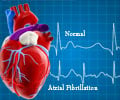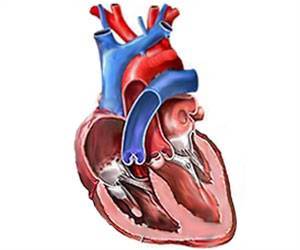
Sleep-Disordered Breathing, Hypoxia, and Pulmonary Physiologic Influences in Atrial Fibrillation
Go to source). The study found this risk persisted even after accounting for lung function, suggesting sleep-related hypoxia independently increases atrial fibrillation risk separate from any underlying lung disease.
Navigating Atrial Fibrillation
Atrial fibrillation causes an irregular and often abnormally fast heart rate, which can lead to poor blood flow and complications like stroke. An estimated 2.7-6.1 million people in the U.S. are living with AFib.‘A connection is established by researchers between sleep apnea and the onset of atrial fibrillation, a prevalent heart rhythm disorder. #sleepdisorder #sleepapnea #atrialfibrillation’
Tweet it Now
The study showed that 5% of patients were diagnosed with AFib within 5 years of their sleep study despite the cohort being fairly young (mean of 51 years old). It also found that for every 10 percentage point decrease in mean oxygen saturation, risk of AFib increased by 30%. The researchers plan future studies to better understand the mechanisms linking sleep disordered breathing, which includes sleep apnea and sleep-related hypoxia, to AFib development. They also aim to examine whether current treatments for sleep apnea, such as CPAP, can help lower AFib risk. Their findings can inform future clinical trials of sleep disordered breathing treatments, such as supplemental oxygen at night.
Reference:
- Sleep‐Disordered Breathing, Hypoxia, and Pulmonary Physiologic Influences in Atrial Fibrillation - (https://www.ahajournals.org/doi/10.1161/JAHA.123.031462)
Source-Eurekalert















